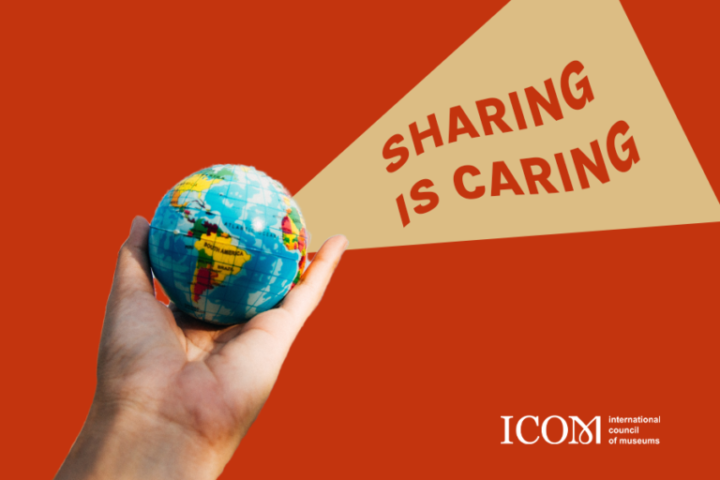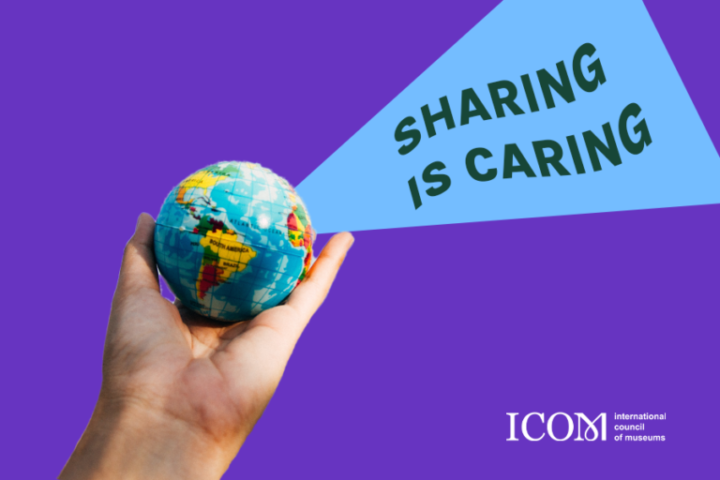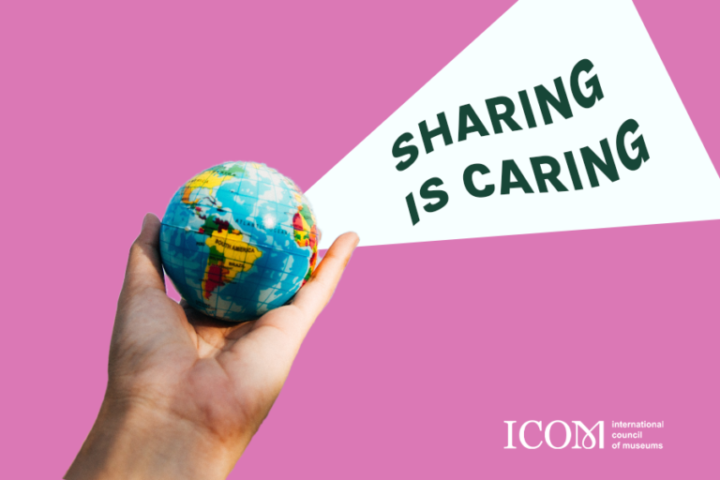Authors: Carla Coelho. Technical assistant at Casa de Oswaldo Cruz / Fundação Oswaldo Cruz, Brazil – José Luiz Pederzoli Jr. Unit Manager of Strategic Planning at ICCROM (International Centre for the Study of the Preservation and Restoration of Cultural Property), Italy – Simon Lambert, Preventive conservation manager at Canadian Conservation Institute, (CCI), Canada – Irene Karsten. Senior Preventive conservation advisor at Canadian Conservation Institute, (CCI), Canada
Keywords: risk management; collections; database; interdisciplinarity.
Museum challenges
Given limited resources, museums and other heritage institutions around the world (archives, libraries, historic buildings and sites) frequently need to decide which actions to prioritize to ensure the conservation of collections and the safety of visitors and staff. Threats to cultural assets are varied and range from cumulative processes – wear and tear caused by use, fading due to exposure to light, etc. – to events such as insect attacks, floods and fires. Meanwhile, financial resources and teams dedicated to the conservation of cultural heritage are often disproportionate to the size of the preservation challenges.
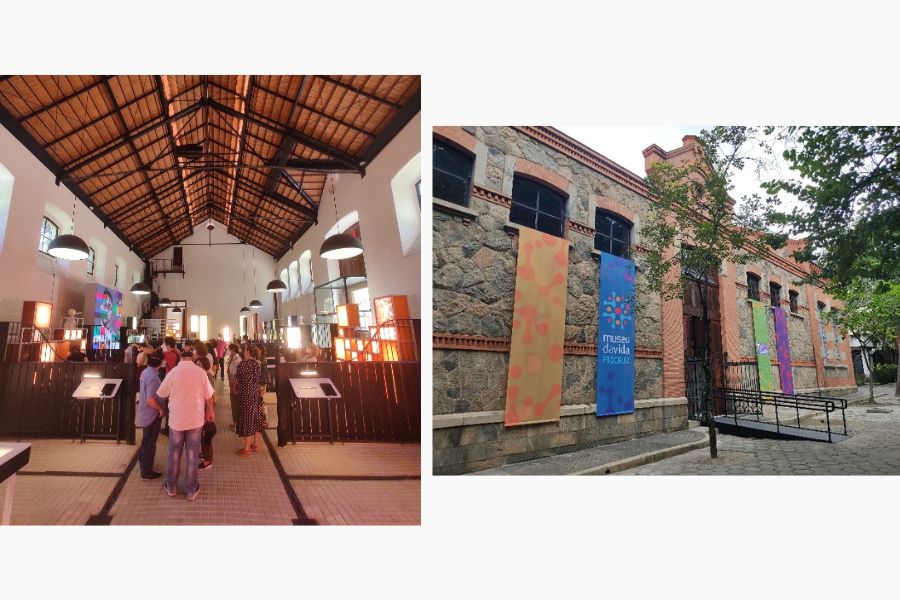
Fig.1 and 2 – Public visiting an exhibition at the Museum of Life (Cavalariça, Fiocruz’s historic building). Source: COC/FIOCRUZ, 2022.
Since the early 2000s, ICCROM (International Center for the Study of the Preservation and Restoration of Cultural Property) and the Canadian Conservation Institute (CCI) have been working in partnership to formulate and disseminate the ABC Method for risk management for cultural heritage. The approach holistically considers the different risks that can impact the value of cultural assets, from cumulative processes to rare events. Based on the use of specific tools, such as the 10 agents of deterioration, the 6 layers of enclosure, the ABC scales and the 5 stages of control, it enables comprehensive analysis of risks within the specific context of each institution, evaluation of risk magnitudes for prioritization, and the definition of cost-effective strategies to reduce or prevent risks. Information about the ABC Method is presented in two manuals available on the institutions’ websites: The ABC Method: a risk management approach to the preservation of cultural heritage (Michalski and Pedersoli, 2016) and A guide to risk management of cultural heritage (Pedersoli, Antomarchi and Michalski, 2016).
The ABC Risk Management System for cultural heritage
In 2020, with the aim of facilitating the implementation of risk management in heritage institutions, a collaborative project was established between Casa de Oswaldo Cruz/Oswaldo Cruz Foundation (Fiocruz)[i], ICCROM and CCI to develop a web-based tool that could be used simultaneously by different members of teams responsible for the management of cultural assets. The starting point was the CCI’s Risk Management Database, a Microsoft Access tool developed by the conservation scientist Stefan Michalski (CCI, retired). Fiocruz adopted the ABC Method in 2014 for the institution’s diversified cultural assets, which include archival, bibliographic, biological and museum collections, buildings, and historic sites (Coelho et al, 2023). The experience of implementing the first cycle of risk management for the institution’s cultural heritage demonstrated the suitability of the ABC Method for different types of assets and indicated the need to develop a tool that would facilitate the storage and analysis of data, and support ongoing risk management cycles.
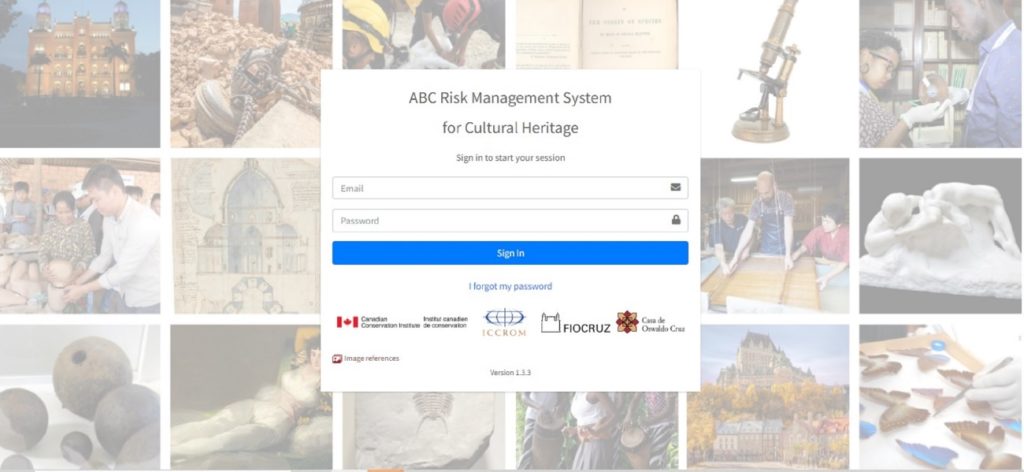
Fig.3 – ABC System login screen. Source: COC/FIOCRUZ; ICCROM; CCI, 2022.
Launched in 2022[ii], the ABC Risk Management System for cultural heritage is structured in modules according to the stages of the risk management process as defined by ISO 31000: establish context, identify risks, analyze risks, evaluate risks, treat risks and communicate. Teams from the Brazilian Institute of Museums and National Archives of Brazil were invited to participate at the system testing stage and contributed important feedback to improve the tool.
The System automates all the calculations used in the ABC Method and enables the storage and analysis of data necessary for cyclical risk management assessments, contributing to the sustainability of conservation actions. The tool allows different stakeholders to work in an interdisciplinary and collaborative way. Moreover, for the first time, a database for the ABC Method is freely available to anyone, unlike its predecessor, which was shared only with participants of risk courses.
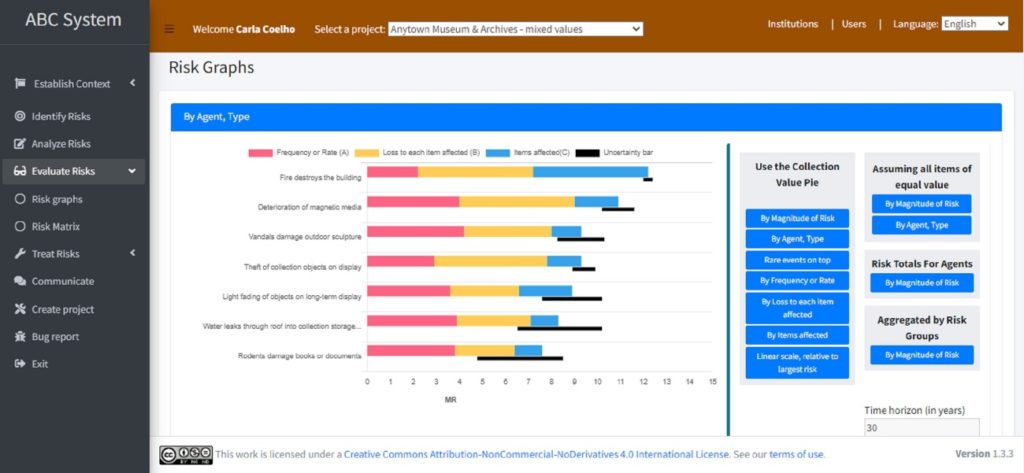
Fig.4 – Risk assessment graph generated by the ABC System. Source: COC/FIOCRUZ; ICCROM; CCI, 2022.
Future perspectives
The development of the tool aims to contribute to sustainability in museums and other cultural institutions, optimizing the risk management process using a free computer resource based on a consolidated risk management method for cultural assets.
The System is currently available in English, Portuguese, Spanish and French. Versions in other languages should be made available in the future through partnerships with professionals and institutions in different countries. The package, which contains the System, user manual and installation tutorial, is freely available for download from the ICCROM, CCI and COC-Fiocruz websites[iii]. The ABC System will be supported through periodic monitoring, future improvements based on feedback from users, and the creation of an online community forum.
[i] Fundação Oswaldo Cruz (Fiocruz) is an institution of the Brazilian’s Ministry of Health whose mission includes promote health and social development, generate and disseminate scientific and technological knowledge. Casa de Oswaldo Cruz (COC-Fiocruz) is a technical-scientific unit whose mission includes the preservation of Fiocruz’s cultural heritage.
[ii]The launch event video is available in Portuguese (https://www.youtube.com/watch?v=FZD8EVc-Iy4&t=5837s) and English (https://www.youtube.com/watch?v=x4_M0P4hufo&t=88s).
[iii] The ABC System is available for download at https://www.iccrom.org/news/managing-risks-cultural-heritage-abc-system, https://www.canada.ca/en/conservation-institute/services/risk-management-heritage-collections.html and https://www.coc.fiocruz.br/index.php/pt/patrimonio-cultural/sistema-abc-de-gestao-de-riscos.
References
COC/FIOCRUZ; ICCROM; CCI. (2022). ABC risk management system for cultural heritage. Version 1.3.3. Rio de Janeiro: COC/Fiocruz; ICCROM; CCI.
Coelho, Carla; Pinheiro, Marcos José; Sá, Bruno; Serrano, Nathália Vieira (2023). Risk management as a strategy for the preservation of cultural heritage in sciences and health. 1. ed. Rio de Janeiro: Mórula. Availabe at: https://www.arca.fiocruz.br/handle/icict/57348.
ISO (International Organization for Standardization). 2009. ISO 31000:2009. Risk management – Principles and guidelines. Geneva: International Organization for Standardization.
Michalski, S., Pedersoli Jr, J. L.. (2016). The ABC Method. A risk management approach to the preservation of cultural heritage. [online] Available at: https://www.iccrom.org/sites/default/files/2017-12/risk_manual_2016-eng.pdf and https://www.canada.ca/en/conservation-institute/services/risk-management-heritage-collections.html.
Pedersoli Jr, José Luiz.; Antomarchi, Catherine; Michalski, Stefan. (2016). A Guide to Risk Management of Cultural Heritage. ICCROM, CCI [online]. Available at: https://www.iccrom.org/publication/guide-risk-management.
ABOUT SHARING IS CARING
A dedicated space where we come together to exchange valuable information, resources, and tools within the museum community.
At ICOM, we firmly believe that sharing knowledge is a powerful act. With this new section, we strive to facilitate a network of support and engagement. Our aim is to create a platform where our members can access a wealth of information, gain fresh perspectives, and forge connections with other museums and professionals worldwide.
Here you we will share a diverse range of resources carefully curated by ICOM. From insightful toolkits and engaging documents to research papers, that we believe will prove invaluable to our members.
